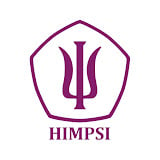Self Control And Peer Attachment: Unraveling Their Links to Adolescent Cybersex Behavior
Abstract
Cybersex, a component of Online Sexual Activity (OSA), is defined as engaging in sexual activities over the internet. This study aims to examine the relationship and influence of adolescent characteristics, family characteristics, self- control and peer attachment on cybersex behavior in adolescents. This study used a quantitative approach with an explanatory design on 116 adolescents in West Tanjung Jabung Regency, Jambi with a purposive sampling technique with the criteria that adolescents aged 16-18 years and often access sexual content or who have been exposed to sexual content. Data processing used Microsoft Excel software and the Statistical Package for Social Science (SPSS) program. The correlation test results show that self-control has a significant negative relationship with cybersex behavior, while peer attachment has a significant positive relationship with cybersex behavior. In addition, multiple linear regression analysis was performed to examine the simultaneous influence of self-control, peer attachment, and other relevant variables on cybersex behavior. The regression results showed a significant negative effect between self-control and length of friendship on cybersex behavior, as well as a significant positive effect of peer attachment and the duration of adolescents' gatherings with their friendship groups on cybersex behavior
Keywords
Full Text:
PDFReferences
Afandi, I. (2018). Hubungan antara pengendalian diri dan religiusitas dengan perilaku seks bebas remaja. AL-IBRAH, 3(1), 42-65.
Agastya, I. G. N., Siste, K., Nasrun, M. W. S., & Kusumadewi, I. (2020). Cybersex addiction: An overview of the development and treatment of a newly emerging disorder. Medical Journal of Indonesia, 29(2), 233–241.
Alexandraki, K., Stavropoulos, V., Burleigh, T. L., King, D. L., & Griffiths M.D. (2018). Internet pornography viewing preference as a risk factor for adolescent Internet addiction: The moderating role of classroom personality factors. Journal of Behavioral Addictions, 7(2), 423–432. https://doi.org/10.1556/2006.7.2018.34
Andani, F., Alizamar, A., & Afdal, A. (2020). Relationship between self-control with cybersex behavioral tendencies and it’s implication for guidance and counseling services. Jurnal Neo Konseling, 2(1), 1-7.
Anggreiny, A., Sarry, S. M., & Aziza, A. (2016). Dinamika Psikologi pada Remaja Pelaku Kekerasan Seksual. Jurnal Psikologia, 11(3), 112-122.
Anggreiny, N., Sarry, S. M. (2018). Kontrol Sosial Pada Remaja Yang Mengakses Cybersex. Jurnal RAP (Riset Aktual Psikologi Universitas Negeri Padang), 9(2), 160. https://doi.org/10.24036/rapun.v9i2.102212
Anggreiny, N., Sarry, S. M. (2018). Perilaku cybersex pada remaja. Insight: Jurnal Pemikiran dan Penelitian Psikologi, 14(2), 201-209. https://doi.org/10.32528/ins.v14i2.1404
Anggreiny, N., & Sarry, S. M. (2018). Kontrol Sosial Pada Remaja Yang Mengakses Cybersex. Jurnal RAP (Riset Aktual Psikologi Universitas Negeri Padang), 9(2), 160. https://doi.org/10.24036/rapun.v9i2.102212
APJII [Asosiasi Penyedia Jasa Internet Indonesia]. (2018). Laporan survei: penetrasi & profil perilaku pengguna internet Indonesia. APJII. Retrieved from www.apjii.or.id
APJII [Asosiasi Penyedia Jasa Internet Indonesia]. (2023). Laporan survei: penetrasi & profil perilaku pengguna internet Indonesia. APJII. Retrieved from www.apjii.or.id
APJII. (2020). Laporan Survei Internet APJII 2019 – 2020. Asosiasi Penyelenggara Jasa Internet Indonesia, 2020, 1–146. https://apjii.or.id/survei
Averill, J. R. (1973). Personal control over aversive stimuli and its relationship to stress. Psychological Bulletin. 80(4), 286-303. https://doi.org/10.1037/h0034845
Bobbio, A., Arbach, K., & Vazsonyi, A. T. (2019). Self-control and deviance: A test of General Theory of Crime in Argentina. Victims & Offenders, 14(1), 199-142. https://doi.org/10.1080/15564886.2018.1552222
Brauer, J. S. R., De Coster, S. (2015). Social Relationships and Delinquency: Revisiting Parent and Peer Influence During Adolescence. Youth and Society, 47(3), 374–394. https://doi.org/10.1177/0044118X124 67655
Carroll, J. S, et al. (2008). Generation XXX: Pornography Acceptance and Use Among Emerging Adults. Journal of Adolescent Research, 23(1), 6–30. https://doi.org/10.1177/07435584073 06348.
Cooper, A., Delmonico, D. L., Griffin, S. E., & Mathy, R. M. (2004). Online sexual activity: An examination of potentially problematic behaviors. Sexual Addiction & Compulsivity, 11, 129-143. https://doi.org/10.1080/10720160490882642
Damayanti, A. P., & Islamiah, N. (2024). Pengaruh Kontrol Psikologis Orang Tua dan Kontrol Diri terhadap Perilaku Cyberbullying Remaja. Journal Psikogenesis, 12(2), 198-215. https://doi.org/10.24854/jps.v12i2.4520
Dewangga, L. K., Rahayu, M.S. (2015). Hubungan antara kontrol diri dengan cybersexual addiction pada siswa SMP 184. Jurnal Psikologi. 15(1), 54-59.
Farhatilwardah, F., Hastuti, D., & Krisnatuti, D. (2019). Karakter sopan santun remaja: Pengaruh metode sosialisasi orang tua dan kontrol diri. Jurnal Ilmu Keluarga Dan Konsumen, 12(2), 114-125. https://doi.org/10.24156/jikk.2019.12.2.114
Ghufron, M. N., Rini, R. S. (2010). Teori-teori Psikologi. Yogyakarta: Ar-Ruzz Media.
Hakiki, N., & Islamiah, N., Alfiasari. (2022). Student Sexual Orientation and the Relationship with Parenting Styles and Peers Attachment. Journal of Child, Family, and Consumer Studies, 1(1), 14-23. https://doi.org/10.29244/jcfcs.1.1.14-23
Hasanah, A. R., Latifah, M., & Krisnatuti, D. (2023). Problematic Internet Use: Examining Parents-Adolescent Communication and Self-Control with Stress Level as Mediator. Jurnal Ilmu Keluarga Dan Konsumen, 16(1), 61-71. https://doi.org/10.24156/jikk.2023.16.1.61
Kusumo, A. T., & Harsono, Y. T. (2022). The Relationship Between Self-control and Cybersex in Adolescent Students at the University of TK. KnE Social Sciences, 55-65.
Leonardhi, A. (2018). Hubungan Kontrol Diri Dengan Kecenderungan Mengakses Situs Porno Pada Remaja. [Skripsi]. Malang: Universitas Muhammadiyah Malang.
Lestari, A. I., & Hartosujono, H. (2014). Hubungan kontrol diri dengan perilaku cybersex remaja pada pengguna warung internet di Glagah Sari Yogyakarta. Jurnal Spirits, 4(2), 65-74.
Lestari, D. A., & Satwika, Y. W. (2018). Hubungan antara peer attachment dengan regulasi emosi pada siswa kelas VIII di SMPN 28 Surabaya. Character: Jurnal Penelitian Psikologi. 5(2).
Lubis, H. K. (2020). Hubungan self control dan konformitas dengan perilaku konsumtif siswa teknik komputer jaringan (TKJ) di smk negeri 2 binjai. [Tesis]. Sumatera Utara: Universitas Islam Negeri Sumatera Utara.
Najib, N. (2018). Pola asuh dan peer group terhadap konsep diri remaja tentang perilaku seksual. HIGEIA (Journal of Public Health Research and Development), 2(4), 646-652.
Ningrum, M. W. K., Fikry, Z. (2024). Pengaruh konformitas teman sebaya terhadap perilaku cybersex pada remaja smk di kabupaten mukomuko. NUSANTARA: Jurnal Ilmu Pengetahuan Sosial. 11(2), 509-515.
Prawiroharjo, P., Ellydar, H., Pratama, P., Edison, R. E., Suaidy, S. E. I., Amani, N. Z., & Carissima, D. (2019). Impaired Recent Verbal Memory in Pornography-Addicted Juvenile Subjects. Neurology Research International. https://doi.org/10.1155/2019/2351638
Priyanggi, A. (2018). Hubungan antara interaksi teman sebaya dengan perilaku cybersex pada remaja. Medan. Universitas Medan Area.
Putri, S. W., Nawangsih, E. (2023). Pengaruh gaya kelekatan terhadap perilaku cybersex pada emerging adulthood di Indonersia. Bandung Conference Series: Psychology Science. 3(2). 991-998. https://doi.org/10.29313/bcsps.v3i2.7612
Rukmi, P. S. R., & Lisnawati, L. (2020). Perilaku perundungan di dunia maya siswa ditinjau dari kualitas kelekatan teman sebaya dan kontrol diri. JPPP-Jurnal Penelitian dan Pengukuran Psikologi, 9(2), 68-76. https://doi.org/10.21009/JPPP.092.04
Subekti, D. (2019). Faktor-faktor yang menyebabkan anak putus sekolah di provinsi jambi tahun 2018. Yogyakarta: Universitas Muhammadiyah Yogyakarta. http://dx.doi.org/10.13140/RG.2.2.20327.50089
Syarifuddin, N., Damayanti, D. S., Afdhal, M. R. (2019). Determinant of cybersex behavior among early adolescenes in Makassar Indonesia. IMPACT: International Journal of Research in Applied, Natural and Social Sciences. 7(1), 37-44.
Utami, W. H. S., Suharnan., & Rini, A. P. (2021). Hubungan antara kontrol diri dan konformitas teman sebaya dengan perilaku kenakalan remaja. Humanistik ’45: Jurnal Psikologi, 6(2), 93-95.
Vazsonyi, A. T., & Jiskrova, G. K. (2018). On the development of self-control and deviance from preschool to middle adolescence. Journal of Criminal Justice, 56, 60-69. https://doi.org/10. 1016/j.jcrimjus.2017.08.005
Widiana, H.S., Retnowati, S., & Hidayat, R. (2004). Kontrol diri dan kecenderungan kecanduan internet. Humanitas: Indonesian Psychological Journal, 1(1), 6-16.
Young, J., Knudson, G., & Boeis, S. C. (2004). The Internet, Sex, and Youths : Implications for Sexual Development. Sexual Addiction & Compulsivity. 11. 343-36. https://doi.org/10.1080/10720160490902630
DOI: http://dx.doi.org/10.22441/biopsikososial.v9i1.30753
Refbacks
- There are currently no refbacks.
Copyright (c) 2025 Biopsikososial: Jurnal Ilmiah Psikologi Fakultas Psikologi Universitas Mercubuana Jakarta
JBUMBand its articles is licensed under a Creative Commons Attribution-ShareAlike 4.0 International License.
Tim Editorial Office
JBUMB
Fakultas Psikologi, Universitas Mercu Buana
Jalan Meruya Selatan No. 1, Kembangan, Jakarta Barat, 11650, Indonesia
Phone: +6281318855243
Email: [email protected]
Website: https://publikasi.mercubuana.ac.id/index.php/biopsikososial/index

















